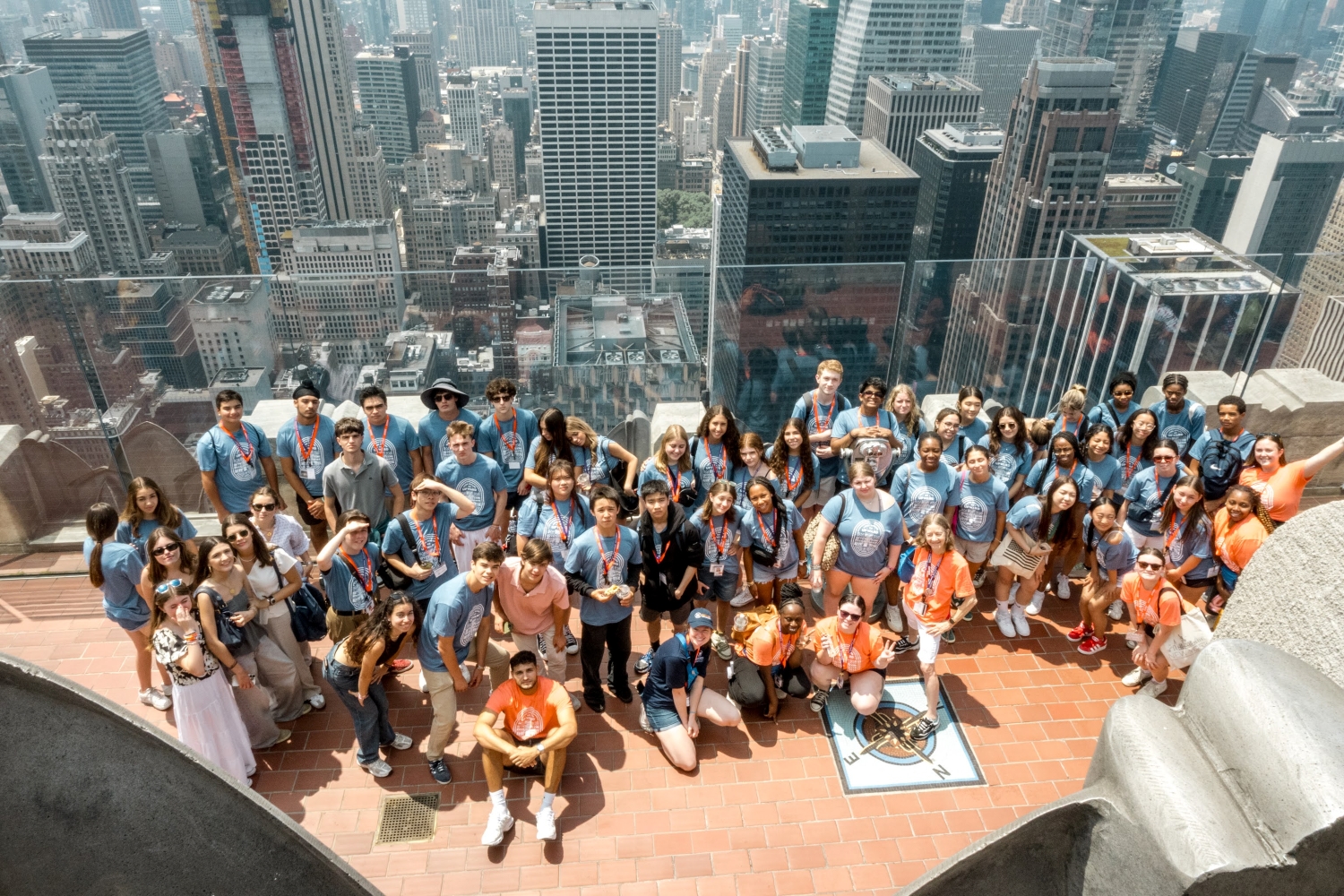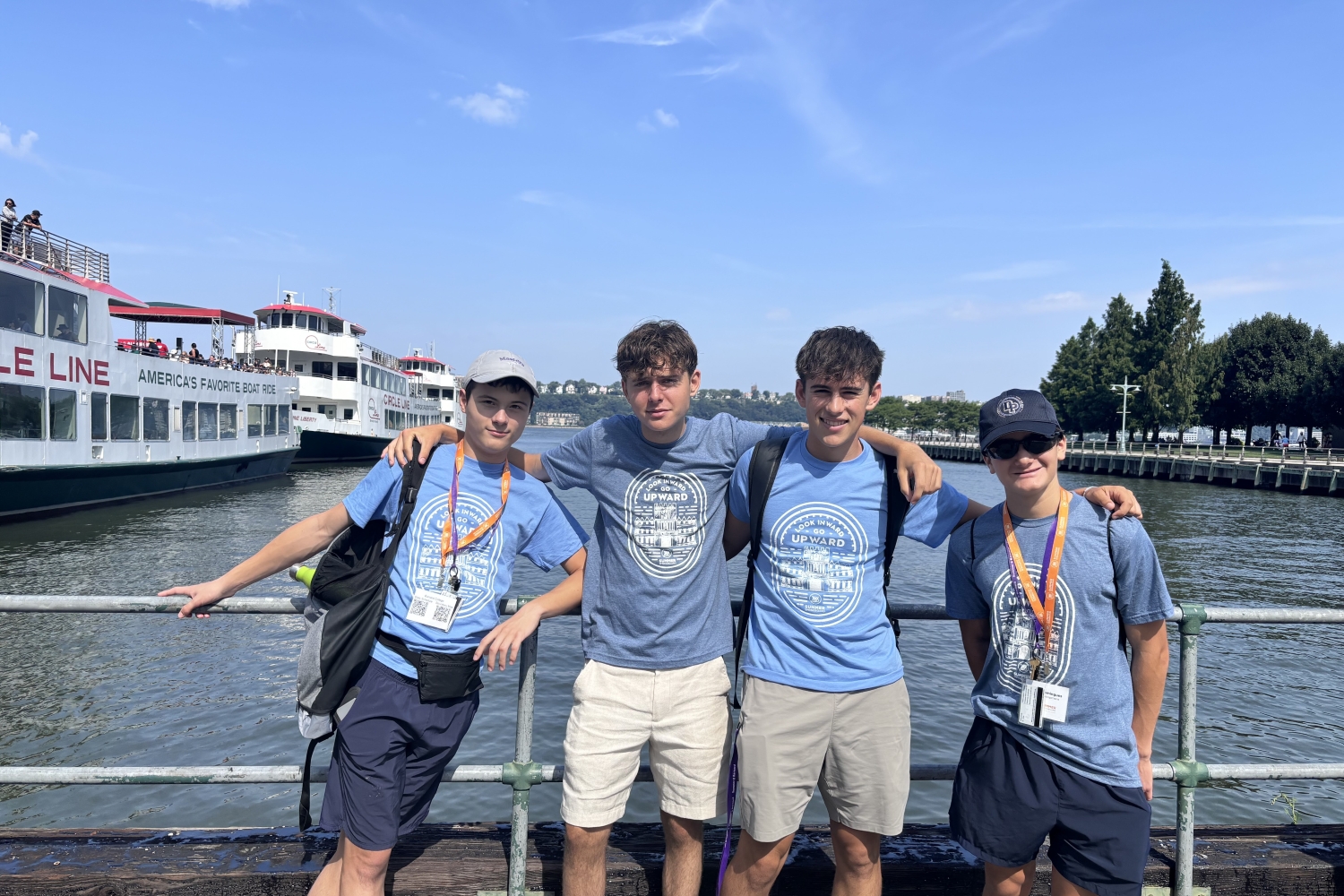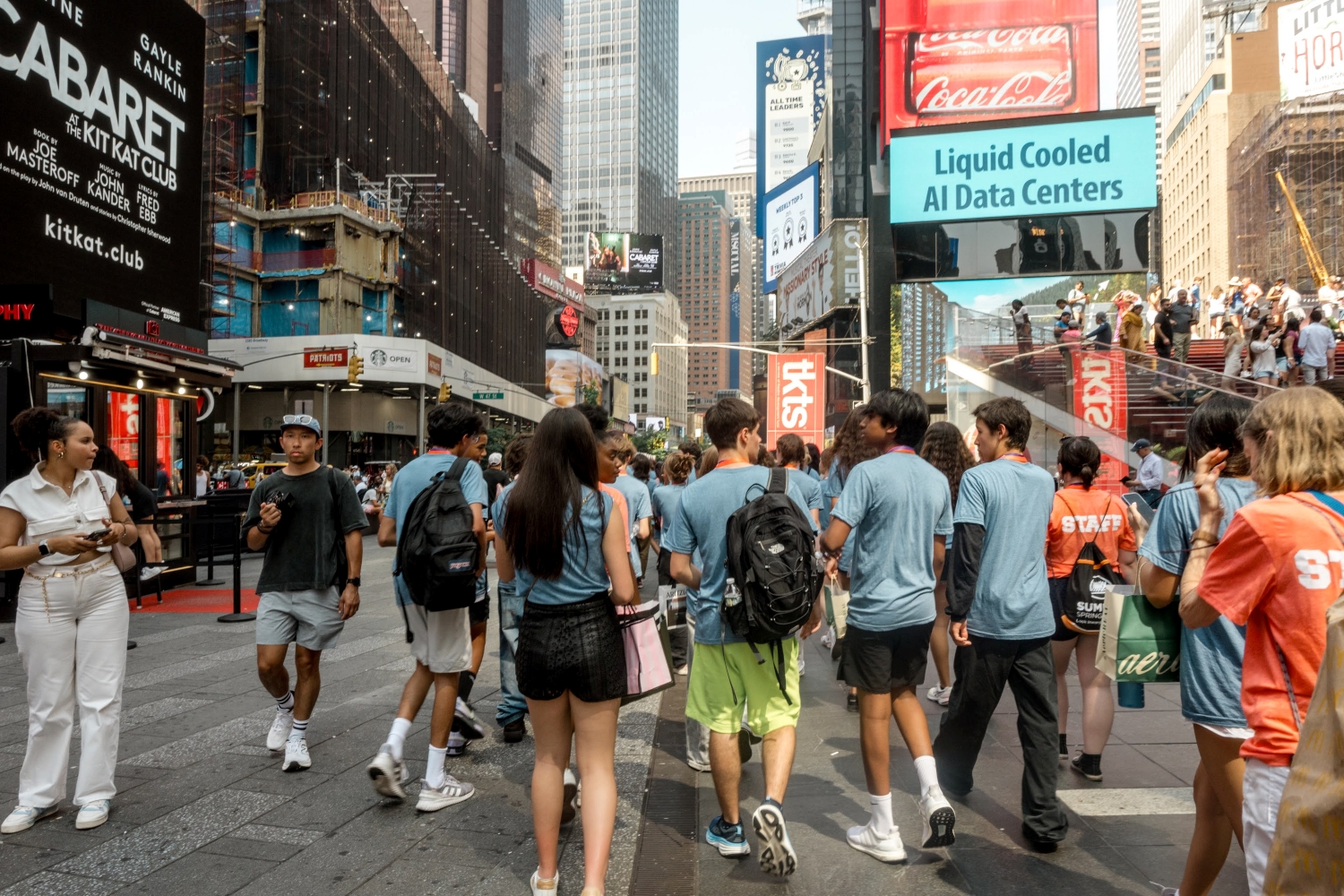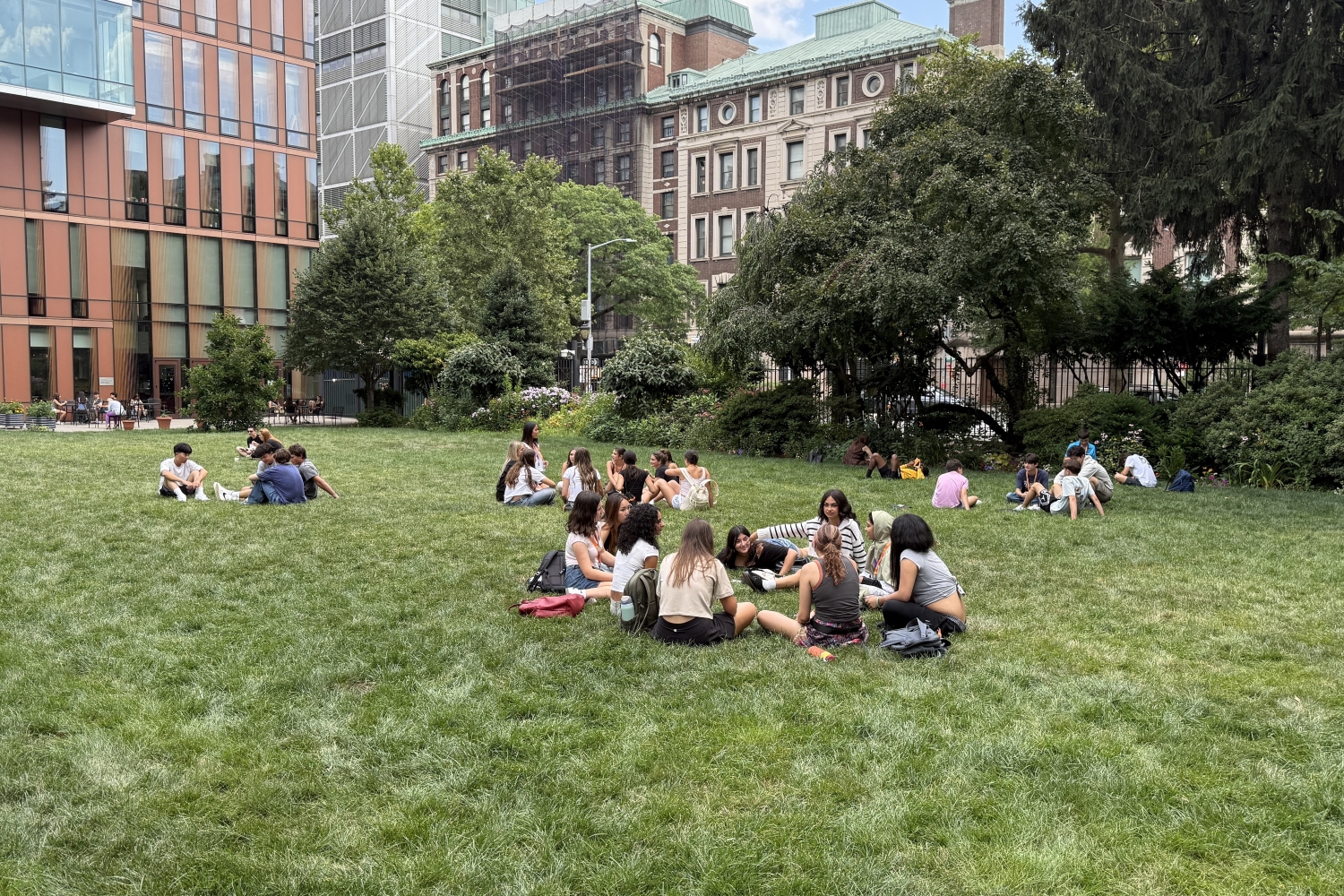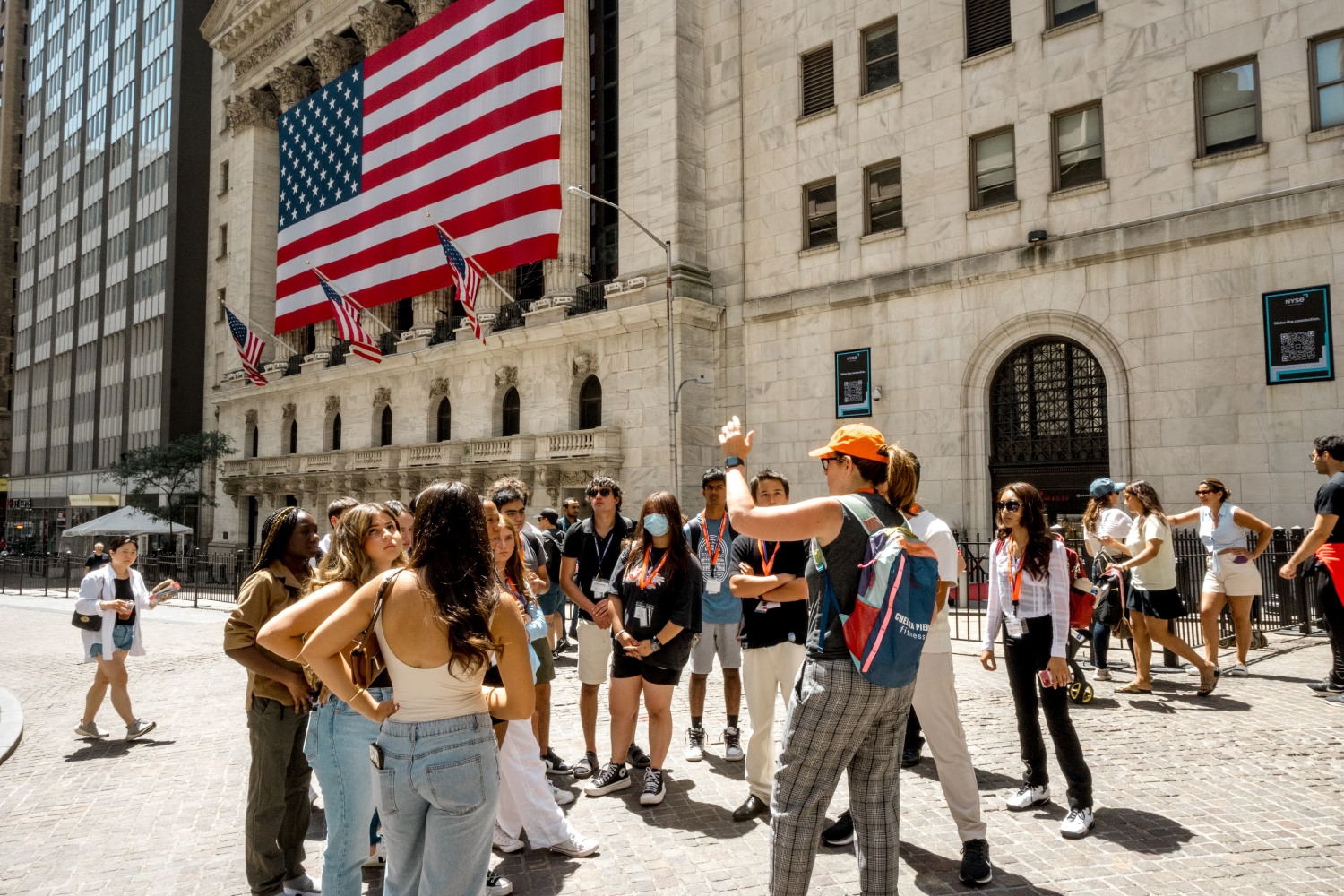Summer Springboard
Psychology & Neuroscience
ON THE CAMPUS OF BARNARD COLLEGE, COLUMBIA UNIVERSITY

UNLOCK THE MYSTERIES OF HUMAN BEHAVIOR AND THE MIND THROUGH HANDS-ON PSYCHOLOGICAL SCIENCE AND CLASSIC EXPERIMENTS
THIS IS A TWO-WEEK PROGRAM WHERE YOU’LL FOCUS ON ONE COURSE FOR THE ENTIRE DURATION.
Psychology & Neuroscience @ Barnard College
Explore the mysteries of the mind and the connection between the brain and human behavior.
Engage in hands-on activities like brain dissection and real-world experiments to address complex behavioral questions.
Gain insight into treatment approaches for various mental health conditions affecting millions.
Connect and interact with clinical psychologists, neurologists, and expert researchers in the field.
Learn to develop original psychological theories and design experiments to test them through research methods.
Discover what a career in psychology looks like, whether as a researcher, academic, or clinician.
Summer Springboard
Psychology & Neuroscience
About This Course
A psychology program for teens on a university campus in New York City
Through psychology simulations and hands-on neurology workshops, students will investigate the connection between the brain and human behavior. Whether their interest lies in the biological workings of the brain and nervous system or in understanding human thoughts and actions, students will have the chance to engage with professionals experienced in both psychology and neuroscience.
Throughout the program, students tackle fundamental questions about how people work by studying classic psychology experiments and exploring topics like social dynamics, emotions, personality, mental illness, beliefs, and the mind-brain relationship. As a capstone, they design and run their own experiment to test a psychology theory and present their findings to the class.
Previous students have enjoyed exclusive excursions, such as behind-the-scenes tours of the NYU Psychology lab, where they observed an fMRI machine in action and participated in research studies. They’ve also explored biology in the Alvarado lab and met guest speakers from Harvard, UCLA, and Google.
TOPICS YOU'LL EXPLORE
Hands-on Learning
Students will actively engage with key psychological questions using hands-on scientific tools. Through classic psychology experiments, they’ll gain firsthand experience exploring how people think, feel, and behave. They’ll dive into topics like social dynamics, emotions, personality, mental health, beliefs, neuroscience, and the mind-body connection. For their capstone, students will create their own mini psychology theory, design and run an experiment to test it, and present their findings to the class—putting learning directly into practice.
Career Exploration
Students will have the exciting opportunity to explore real-world applications of neuroscience and psychology by visiting leading neuroscience centers. Last summer, students met with Emma Ehrenzeller, a certified hypnotist, during an interactive workshop on hypnosis and its connection to neuroscience at Teachers College. They also visited the Living Museum, an innovative space dedicated to art within mental health institutions, where they explored how creative expression plays a role in mental health treatment. These experiences offer students valuable insights into the intersection of neuroscience, psychology, and mental health.
RESOURCES
Course Infosheet
Click here to view or download the printable infosheet for this course.
Program Catalog
Click here to request our catalog to learn more about our summer programs and courses.
Campus Page
Click here to view the website page for this campus and learn more.
“I learned so much more about psychology and neuroscience and the program really helped to reinforce my desire to pursue psychology in college. This also served as a great opportunity to also get a college experience and I think it really helped to prepare me and make me feel more ready for college.”
-Alyssa R. | Alumni Student
Summer Springboard
Psychology & Neuroscience
Meet Your Instructor
Meghan Bjalme-Evans is a neuroscience educator, researcher, and doctoral scholar at Teachers College, Columbia University, where she studies how the brain controls movement, learning, and behavior. At Columbia, Meghan has taught Neuroscience Applications to Education and supported courses in Foundations of Neuroscience and Neuroanatomy, helping students make sense of how the brain works—from cells to complex systems.
Meghan holds a BS in Neuroscience from Binghamton University and an MS in Neuroscience from Columbia University, and she is currently pursuing her PhD in Motor Learning and Control. She has taught and mentored students at the high school, undergraduate, and graduate levels, and is passionate about making neuroscience engaging, approachable, and relevant to everyday life.
Her research explores how the brain changes in movement and neurological disorders such as Parkinson’s and Huntington’s disease, using cutting-edge brain imaging tools like functional near-infrared spectroscopy (fNIRS). She is a recipient of the prestigious Pathfinder Award for emerging researchers and has worked extensively in the Neurorehabilitation Lab at Teachers College.
In the classroom, Meghan brings real-world neuroscience, hands-on learning, and big questions about the brain, behavior, and human potential.
MEGHAN BJALME-EVANS

“I enjoyed my experience at Summer Springboard. It was hands-on and gave me a great understanding of what I want to do moving forward. I got to work with a college professor and meet great friends.”
-Bianca H. | Alumni Student
Summer Springboard
Psychology & Neuroscience
Dates & Tuition
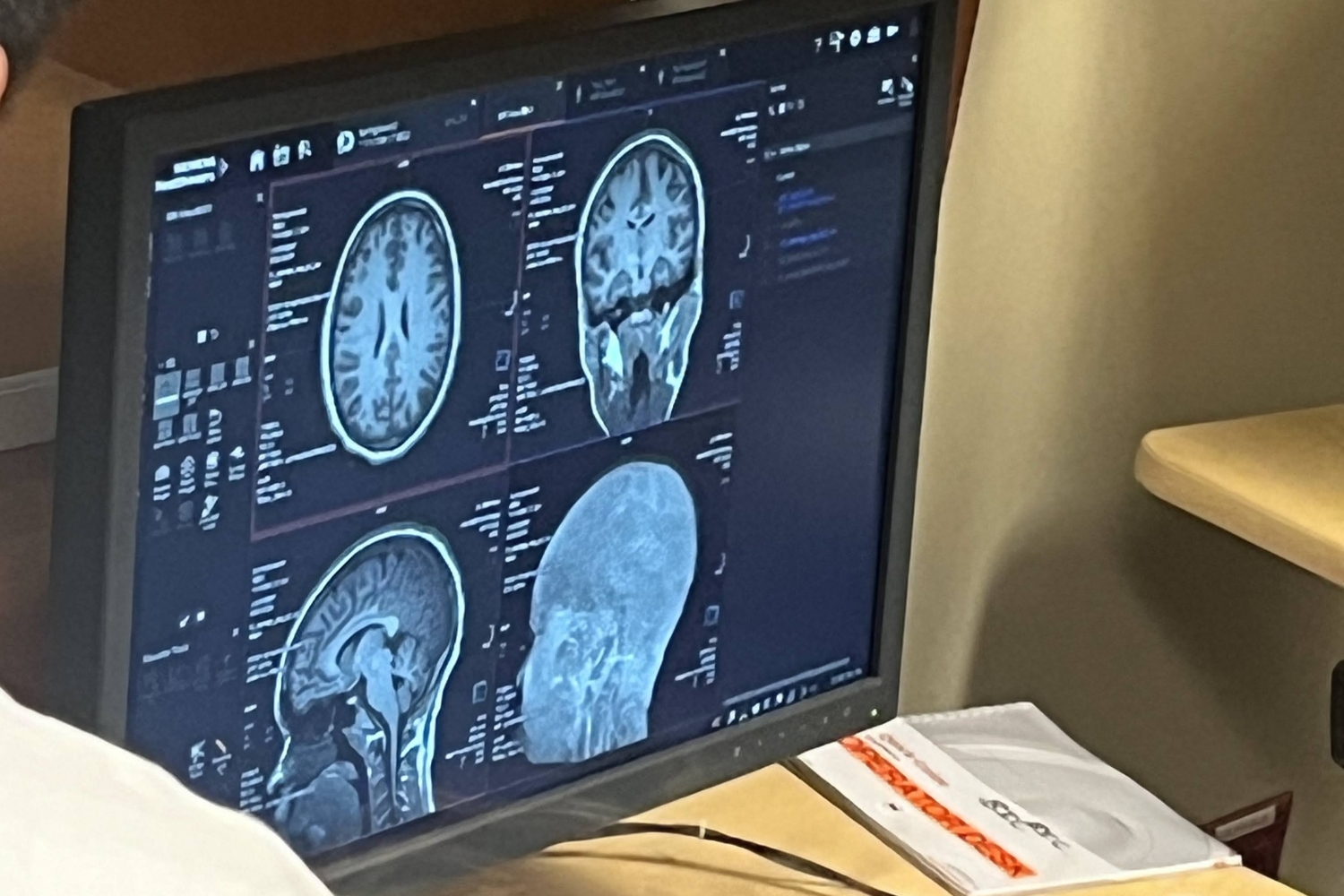
| 2026 Dates |
|---|
| Session 1: July 5 – July 17, 2026 |
| Session 2: July 19 – July 31, 2026 |
Click here to enroll in this course using our online enrollment form.
| Tuition |
|---|
| Residential Tuition: $5,998 |
| Commuter Tuition: $3,298 |
Tuition Protection Plan: Allows for cancellation for any reason up until the day of the program.
| Location |
|---|
| City: New York City |
| State: New York |
| Campus: Barnard College |
Summer Springboard programs are not run by our campus partners (with the exception of Cal Poly and NYSID which are run in partnership with SSB). Universities and their affiliated departments and partners do not control and are not responsible or liable in any manner for any part of the Summer Springboard program.




